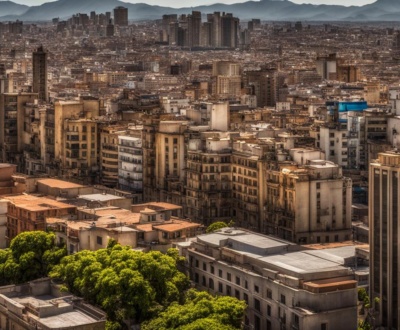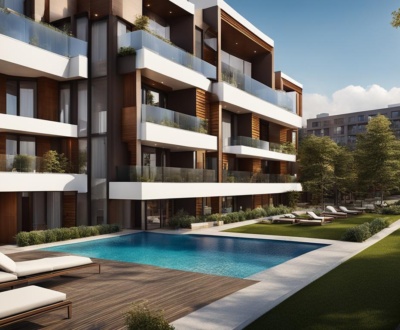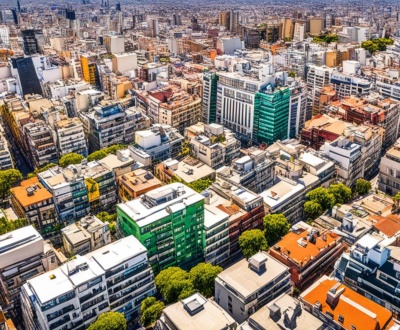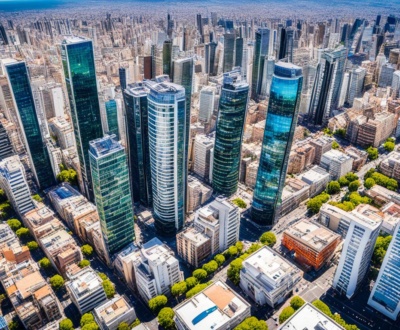Welcome to our comprehensive guide on buying property in Argentina as an expat. In this article, we will explore the current real estate trends in Argentina, the regulations and legal requirements you need to be aware of, and the intricacies of property investment in this captivating South American country. Whether you’re looking to buy a house, an apartment, or a country estate, understanding the compliance and legalities associated with real estate regulations in Argentina is essential.
Argentina’s real estate industry is unique and presents a range of opportunities for expats interested in property investment. However, it’s crucial to navigate the regulatory landscape and understand the legal requirements to ensure a smooth and successful purchasing process. From property regulations and real estate laws in Argentina to the specific buying legalities, this guide will equip you with the knowledge you need to make informed decisions and comply with the regulations set by the Argentine government.
As the Argentine real estate market experiences fluctuations influenced by economic conditions and government policies, understanding the trends and market dynamics becomes even more crucial. Buying property in Argentina involves various steps, from finding the ideal property and engaging with real estate agents to signing purchase agreements and completing the title deed transfer process. Each step requires adherence to the regulations to ensure a secure and legitimate property purchase.
Whether you’re considering buying a house, an apartment, or exploring investment opportunities, this guide will provide you with essential insights into the buying process, the different property types available, and the requirements for property ownership. By gaining a comprehensive understanding of Argentina’s real estate landscape, you’ll be better equipped to make informed decisions and maximize the potential of your investment.
Let’s dive in and explore the intricacies of buying property in Argentina as an expat.
Can foreigners buy property in Argentina?
Yes, foreigners can buy and own property in Argentina. Foreigners have the same civil rights as Argentine citizens, including the right to own real estate. However, there are certain restrictions on the acquisition of land by foreigners, such as limits on the amount of rural land they can own and restrictions on buying land with important water sources.
Foreigners also need to obtain a Tax ID (CDI) and show that their property purchase will benefit the local community. It’s important to comply with the real estate regulations in Argentina when buying property as a foreigner.
Here are the key points to consider when buying property in Argentina as a foreigner:
- Foreigners have the same property ownership rights as Argentine citizens.
- Restrictions apply to the acquisition of land, including limits on rural land ownership and buying land with important water sources.
- Foreigners need to obtain a Tax ID (CDI) and demonstrate that their property purchase will benefit the local community.
- Compliance with real estate regulations in Argentina is crucial when buying property as a foreigner.
By understanding and adhering to the regulations, foreigners can confidently navigate the real estate market in Argentina and make informed property investments.
Foreigners can buy and own property in Argentina, but there are certain restrictions on land acquisition. Compliance with the real estate regulations in Argentina is essential when purchasing property as a foreigner.
Buying land as a foreigner in Argentina
Foreigners interested in purchasing rural land in Argentina should be aware of the specific rules and regulations that govern such transactions. While it is possible for foreigners to acquire rural land, there are certain restrictions in place to protect important water sources and limit the amount of rural land that can be owned.
One important restriction is that foreigners are not allowed to buy land with important water sources or land in close proximity to such sources. This regulation aims to preserve the country’s water resources and ensure their sustainability. Additionally, both at the national and provincial levels, there are limits on the amount of rural land that foreigners can own.
However, there are exceptions to these restrictions. Foreigners who have resided in Argentina for a certain period of time or have Argentine children may be eligible for land ownership under specific circumstances.
| Restriction | Explanation |
|---|---|
| No purchase of land with important water sources | This protects vital water resources in Argentina. |
| Limitation on the amount of rural land owned | Controls the extent of foreign ownership and promotes sustainable land use. |
| Exceptions for foreigners with residency or Argentine children | Allows certain individuals to buy rural land based on their ties to the country. |
Foreigners considering buying rural land in Argentina must also adhere to the legal requirements set forth by the National Rural Land Registry. This includes obtaining a special certificate, which may involve a fee and a thorough verification process. It’s important to note that the procedure may take time, so it’s advisable to plan accordingly.
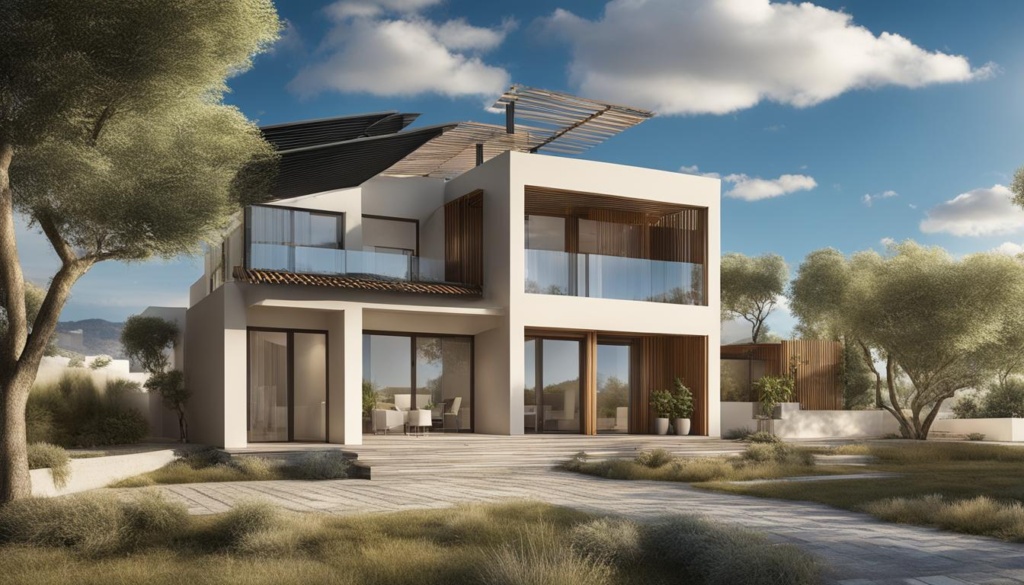
Can you become a resident in Argentina by owning a property?
Owning a property in Argentina does not automatically grant residency or citizenship. However, foreigners can apply for temporary residency as investors if they make a significant investment in Argentina. To obtain temporary residency, individuals must present an investment project to the Dirección Nacional de Migraciones, demonstrating compliance with Argentina’s real estate regulations. This includes investing a minimum amount of Argentine pesos and providing proof of the funds’ legality. Temporary residency is typically granted for a maximum of one year and can be renewed based on the fulfillment of specific requirements.
If you are considering becoming a resident in Argentina by owning a property, it’s essential to consult with legal experts and the relevant authorities to ensure compliance with the legal requirements for real estate in Argentina. They can provide guidance on specific requirements, eligibility criteria, and necessary documentation for residency applications.
Implementing the legal compliance measures will help foreign investors navigate the Argentina real estate industry regulations. By following the proper procedures and meeting the necessary legal requirements, individuals can increase their chances of obtaining temporary residency and enjoying their property investment in Argentina.
“Applying for temporary residency as an investor is a viable option for foreigners who wish to establish long-term ties with Argentina. It not only allows you to own property but also offers an opportunity to immerse yourself in the country’s rich culture and vibrant lifestyle.” – Carlos Cortez, Immigration Lawyer
Benefits of Temporary Residency in Argentina
Gaining temporary residency in Argentina by owning a property can provide various benefits:
- Extended stay: Temporary residency allows individuals to reside in Argentina for an extended period, typically up to one year, with the potential for renewal.
- Work opportunities: Temporary residents have the option to work or engage in business activities within Argentina.
- Access to healthcare and education: Residency status grants access to public healthcare facilities and educational institutions in Argentina.
- Investment opportunities: Holding temporary residency opens doors to exploring investment opportunities beyond real estate, facilitating business ventures and expansion.
Consulting Legal Experts to Ensure Compliance
Complying with Argentina real estate regulations and legal requirements is crucial for foreign investors seeking residency through property ownership. Consulting immigration lawyers or professionals experienced in Argentina’s real estate industry can provide valuable insights into the compliance process and help navigate potential challenges.
Legal experts can assist in preparing the necessary documentation, verifying the authenticity of funds, and ensuring adherence to the specific criteria outlined by the Dirección Nacional de Migraciones. Their expertise will enable a smoother and more efficient application process, increasing the chances of securing temporary residency and enjoying the benefits of property ownership in Argentina.
Should you buy or rent in Argentina?
The decision to buy or rent property in Argentina depends on individual circumstances. Consideration must be given to various factors such as Argentina real estate trends, property investment regulations in Argentina, and the legalities surrounding buying property in Argentina.
If you plan to use the property for a significant amount of time or potentially retire in Argentina, buying may be a wise choice. By purchasing a property, you can establish a long-term presence in the country and potentially benefit from future appreciation in property values. Furthermore, owning property provides a greater sense of stability and allows you to make modifications according to your preferences.
However, if you will only be using the property for a short period of time or prefer flexibility, renting may be more suitable. Renting allows for mobility and eliminates the responsibilities associated with property ownership such as property taxes and maintenance. It can also be an ideal option for those who are uncertain about their long-term plans in Argentina or are testing the waters before committing to a permanent purchase.
When making the decision to buy or rent in Argentina, it’s important to evaluate economic factors, financing options, and property taxes. Additionally, potential difficulties in the resale market should be considered, ensuring that any potential investment aligns with your financial goals.
“The decision to buy or rent property in Argentina ultimately hinges on your personal circumstances, financial objectives, and long-term plans. Understanding Argentina’s real estate trends, property investment regulations, and the legalities surrounding property purchases can help inform your decision-making process.”
Comparing Buying and Renting in Argentina
| Buying | Renting | |
|---|---|---|
| Benefits |
|
|
| Considerations |
|
|
Ultimately, the decision to buy or rent in Argentina is a personal one that requires careful consideration of various factors. By evaluating your individual circumstances, weighing the pros and cons, and staying informed about Argentina’s real estate trends and property investment regulations, you can make an informed decision that aligns with your goals and aspirations.
What are the different steps of the buying process?
The process of buying property in Argentina involves several key steps that buyers need to be aware of. By following these steps and complying with the real estate laws in Argentina, buyers can ensure a smooth and legal property acquisition.
Finding a Notary Public (Escribano)
One of the first steps in the buying process is finding a reputable notary public, also known as an escribano, who will oversee the legal aspects of the transaction. The notary public plays a crucial role in verifying the legality of the property and facilitating the transfer of ownership.
Obtaining a Tax ID (CDI)
Foreign buyers must obtain a Tax ID (CDI) from the Argentine Tax Authority (AFIP) before purchasing property in Argentina. The CDI is a unique identification number that ensures compliance with tax regulations and is a requirement for property ownership.
Finding a Real Estate Agent
Working with a reliable real estate agent is highly recommended when buying property in Argentina. A qualified agent can provide valuable insights into the local market, assist with property searches, and help negotiate favorable terms.
Making an Initial Offer (Reserva)
Once a suitable property has been found, buyers can make an initial offer, known as a reserva. This offer is typically accompanied by a monetary deposit to demonstrate the buyer’s commitment to the purchase.
Signing a Purchase Agreement (Seña and/or Boleto)
After the initial offer has been accepted, the next step is to sign a purchase agreement, which can be a seña or boleto. This agreement outlines the terms and conditions of the purchase, including the agreed-upon price, payment schedule, and any contingencies.
Completing the Title Deed Transfer (Escritura)
The title deed transfer, also known as escritura, is the final step in the buying process. This involves executing the official transfer of ownership from the seller to the buyer. The escritura is prepared by the notary public and signed by both parties.
Registering the Property
Once the title deed transfer is complete, it is essential to register the property with the appropriate authorities. This registration ensures that the buyer’s ownership rights are formally recognized and provides legal protection.
Overall, navigating the buying process in Argentina requires careful attention to detail and compliance with real estate regulations. By working with experienced professionals and following the necessary steps, buyers can successfully acquire property while ensuring legalities and compliance with the real estate laws in Argentina.
How is the real estate market in Argentina?
The real estate market in Argentina has experienced fluctuations in recent years, particularly in the capital city of Buenos Aires. Foreign investors have been drawn to the market due to decreasing apartment prices in Buenos Aires, presenting an attractive opportunity for property investment. However, it’s crucial to recognize that the real estate market can be influenced by economic conditions and government policies.
Staying informed about market trends is essential when considering real estate investments in Argentina. It is advisable to seek professional advice from industry experts who can provide insights and guidance in navigating the Argentine real estate market. Different regions in Argentina, such as Buenos Aires, Patagonia, and Mendoza, offer unique prospects for property buyers.
It’s important to consider Argentina Real Estate Trends, property investment regulations in Argentina, and Argentina real estate industry regulations when evaluating investment opportunities in the real estate market.
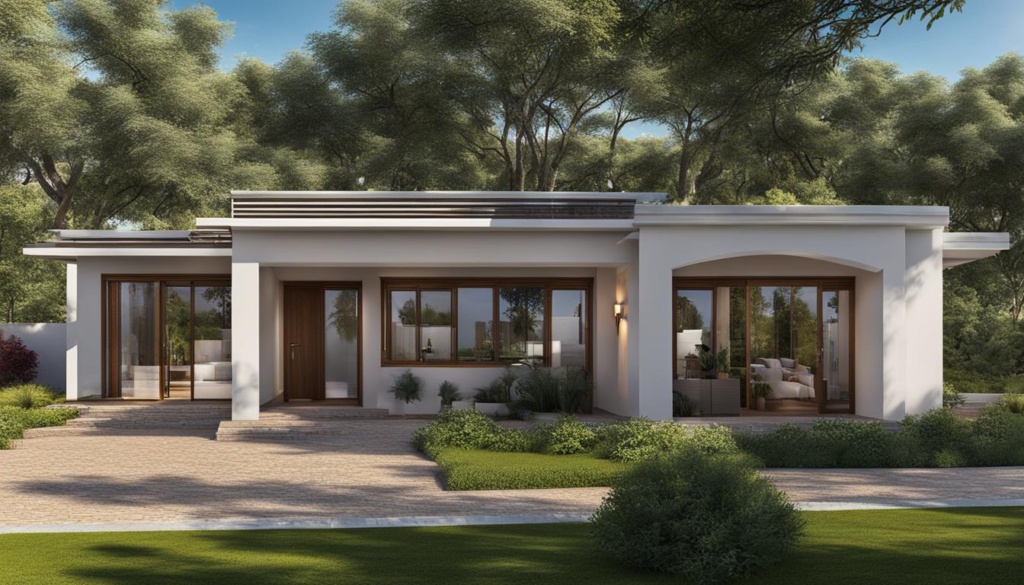
| Factors | Impact |
|---|---|
| Economic Conditions | Economic fluctuations can influence property prices and market dynamics. |
| Government Policies | Changes in regulations and policies can impact real estate investment opportunities. |
| Location | Different regions in Argentina offer varying property market trends and growth prospects. |
| Supply and Demand | Supply and demand imbalances can influence property prices and investment potential. |
| Infrastructure Development | Investments in infrastructure can stimulate property market growth in certain areas. |
By considering these factors and analyzing Argentina Real Estate Trends, property investment regulations in Argentina, and Argentina real estate industry regulations, investors can make informed decisions when engaging in the real estate market in Argentina.
Common Property Types in Argentina
Argentina’s real estate market offers a diverse range of property types to cater to different preferences and budgets. Whether you’re looking for an apartment in the bustling urban areas or a tranquil country estate, Argentina has options to suit your needs.
Apartments (Departamentos): Apartments are a popular choice in Argentina, especially in urban areas such as Buenos Aires. They offer convenience, amenities, and the opportunity to live in the heart of the city. Apartments come in various sizes and configurations, from compact studio units to spacious penthouses.
Houses (Casas): If you prefer a more independent lifestyle or require additional space, houses are an excellent option. Argentina offers a range of detached houses in suburban and rural regions. These houses often come with outdoor spaces, gardens, and privacy, providing a comfortable and spacious living environment.
Country Estates (Quintas): For those seeking a retreat from the city, Argentina’s countryside offers beautiful country estates. Quintas provide an opportunity to enjoy nature, wide-open spaces, and a peaceful environment. These properties typically feature expansive lands, stunning views, and amenities such as swimming pools and outdoor recreation areas.
When considering different property types, it’s crucial to understand the legal regulations and requirements associated with each. Consulting with a knowledgeable real estate agent and lawyer can help ensure a smooth and compliant property purchase process.
| Property Type | Description |
|---|---|
| Apartments (Departamentos) | Convenient living in urban areas with various sizes and configurations. |
| Houses (Casas) | Detached properties in suburban and rural regions, offering space and privacy. |
| Country Estates (Quintas) | Tranquil properties in the countryside, providing a retreat from the city. |
Buying a house in Argentina: The procedure
When it comes to buying a house in Argentina, there are several important steps to follow to ensure a smooth and legally compliant process. The first step is to search for the ideal property that meets your requirements and budget. This can be done by working with a reputable real estate agent who has a good understanding of the local market.
Once you have found the perfect house, the next step is to make an offer, also known as a reservation. This involves negotiating the price and terms of the purchase with the seller. It’s important to conduct due diligence during this stage to ensure that the property is free from any legal issues or disputes.
After the offer has been accepted, the next step is to sign a contract of purchase and sale, known as a “boleto.” This legally binding agreement outlines the terms and conditions of the transaction, including the purchase price, payment terms, and any contingencies.
The final step in the buying process is the completion of the title deed transfer, known as an “escritura.” This is the official document that signifies the transfer of ownership from the seller to the buyer. It’s crucial to register the property with the relevant authorities to ensure valid ownership rights and compliance with Argentina’s real estate regulations.
Overall, buying a house in Argentina requires careful attention to detail and compliance with the country’s real estate regulations. It’s essential to work with qualified professionals, such as real estate agents and lawyers, who can guide you through the process and ensure a successful acquisition of your dream home.
More from our blog
See all postsRecent Posts
- Argentina Property Management: Expert Care & Services February 2, 2024
- Understanding Argentina Real Estate Law Essentials February 2, 2024
- Argentina Luxury Apartments: Upscale Living February 1, 2024



